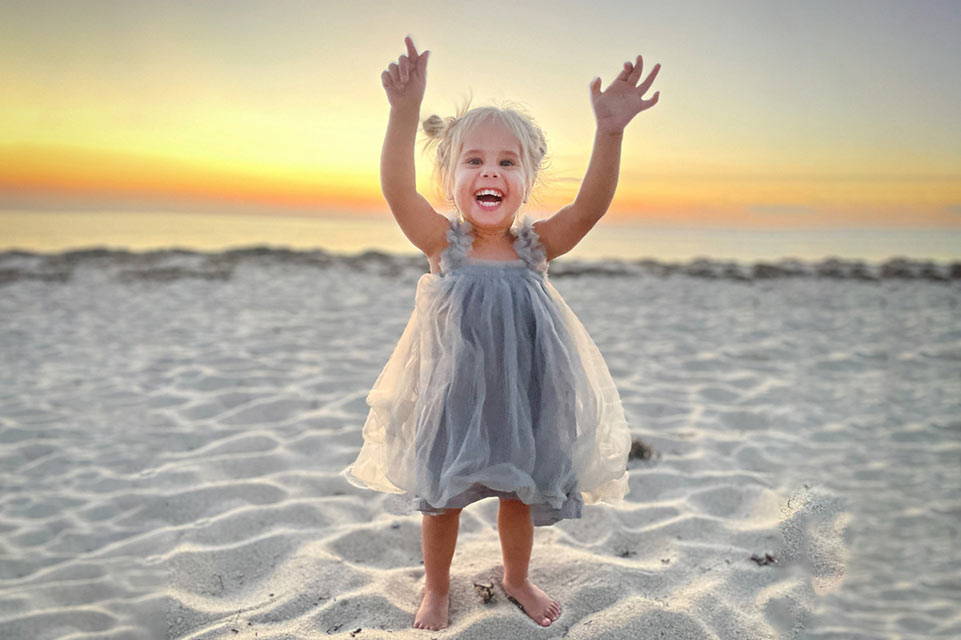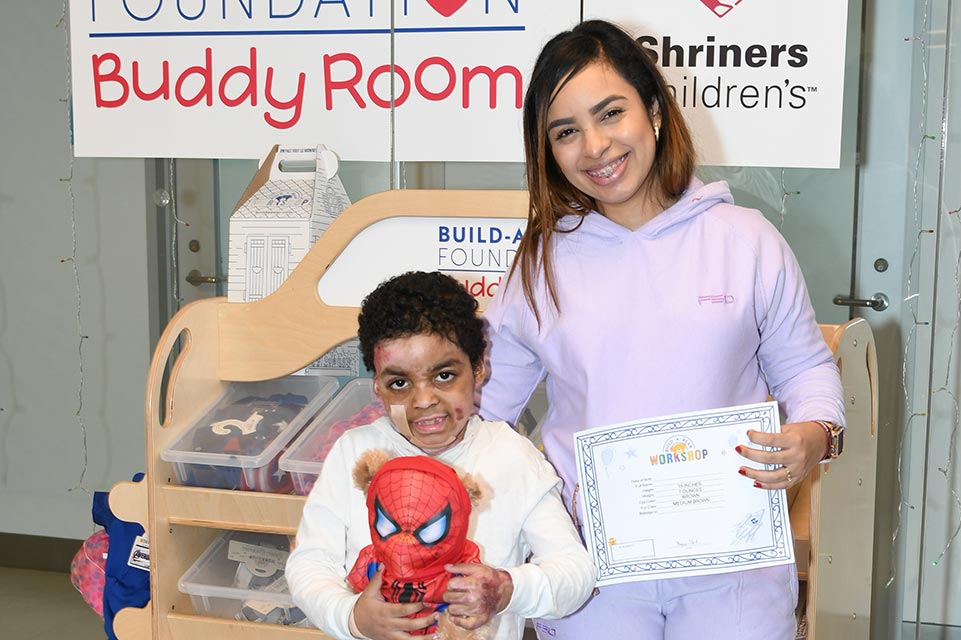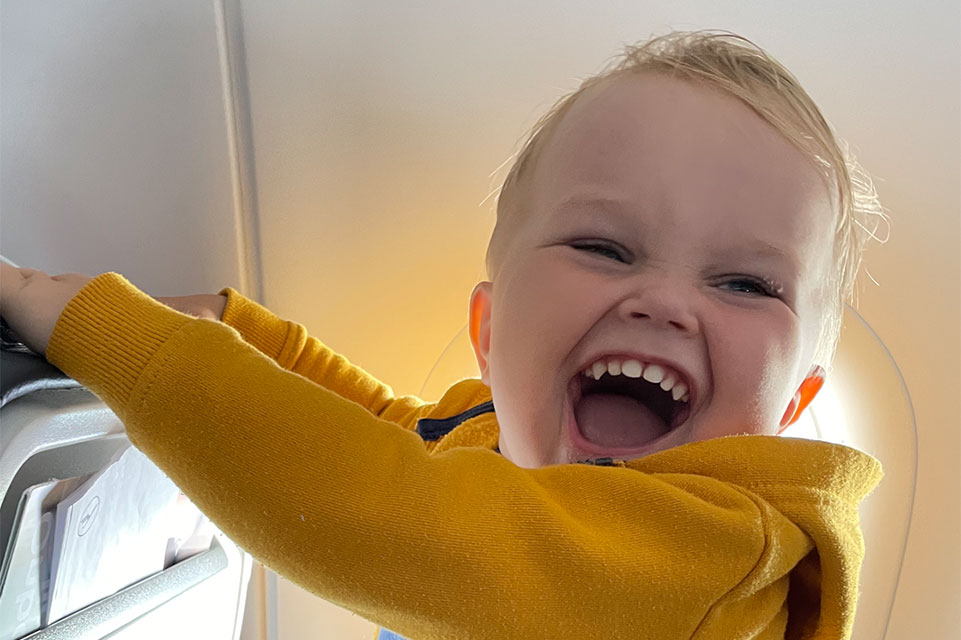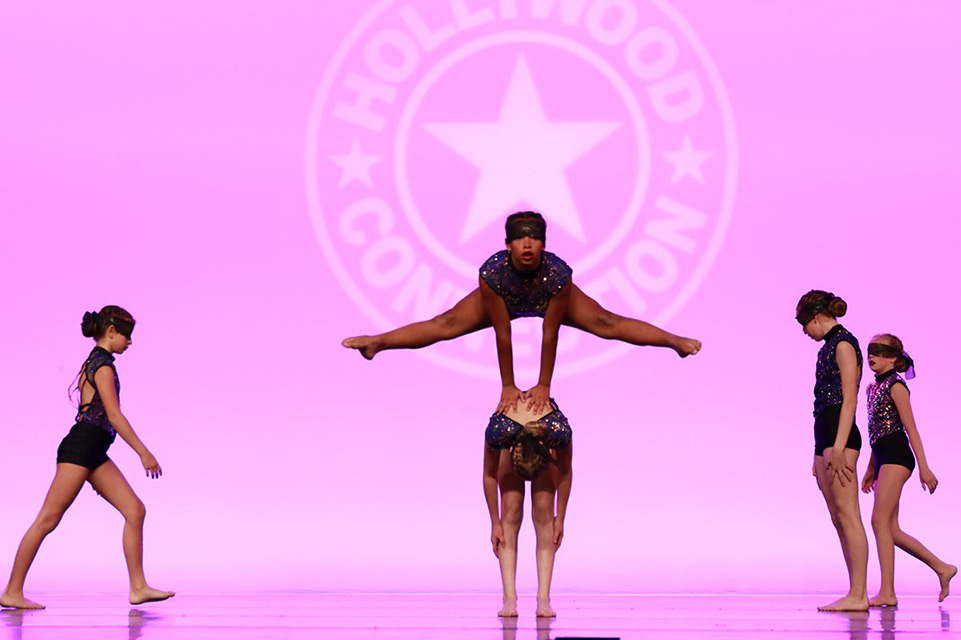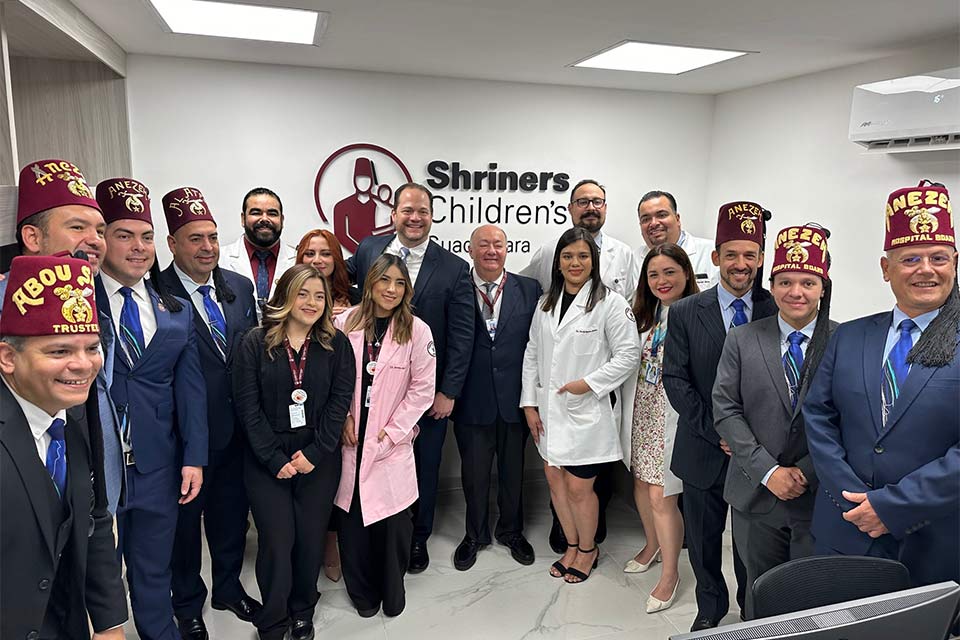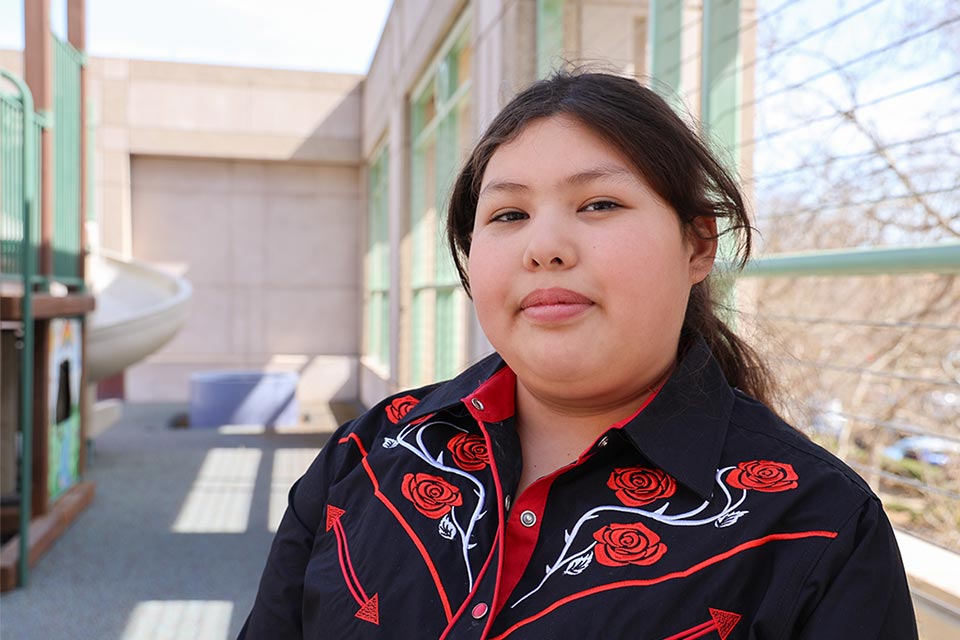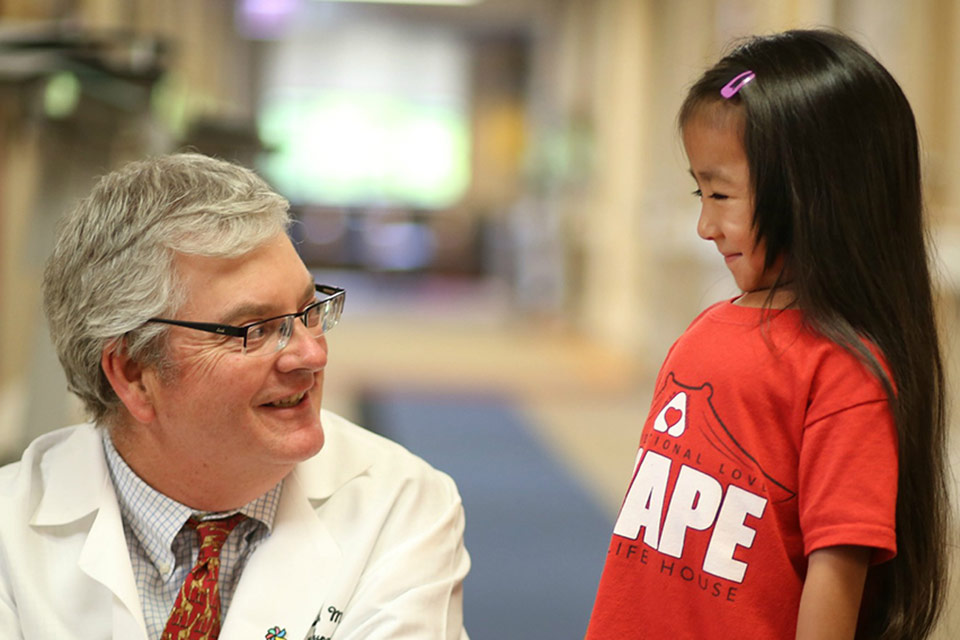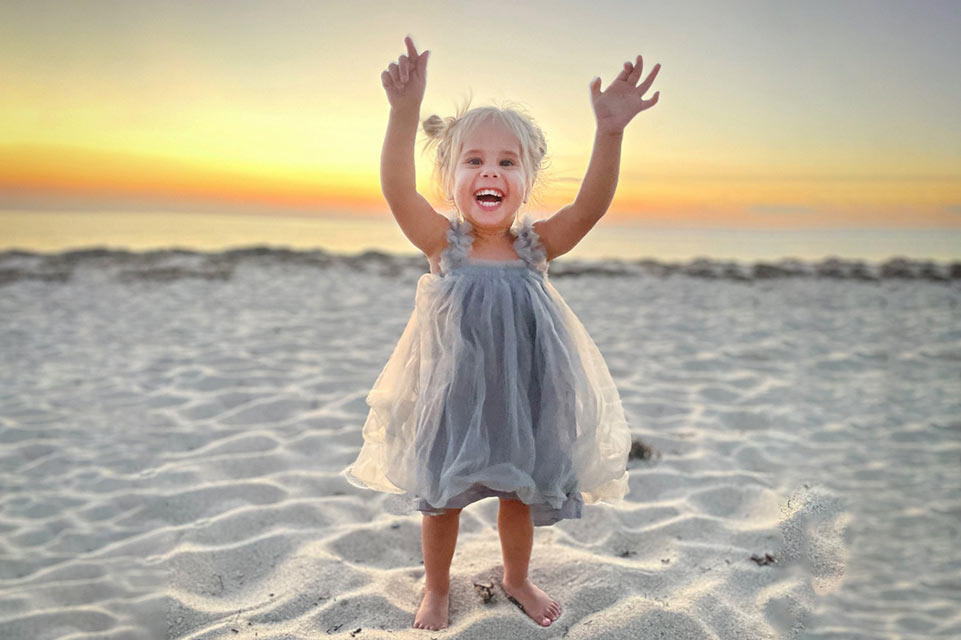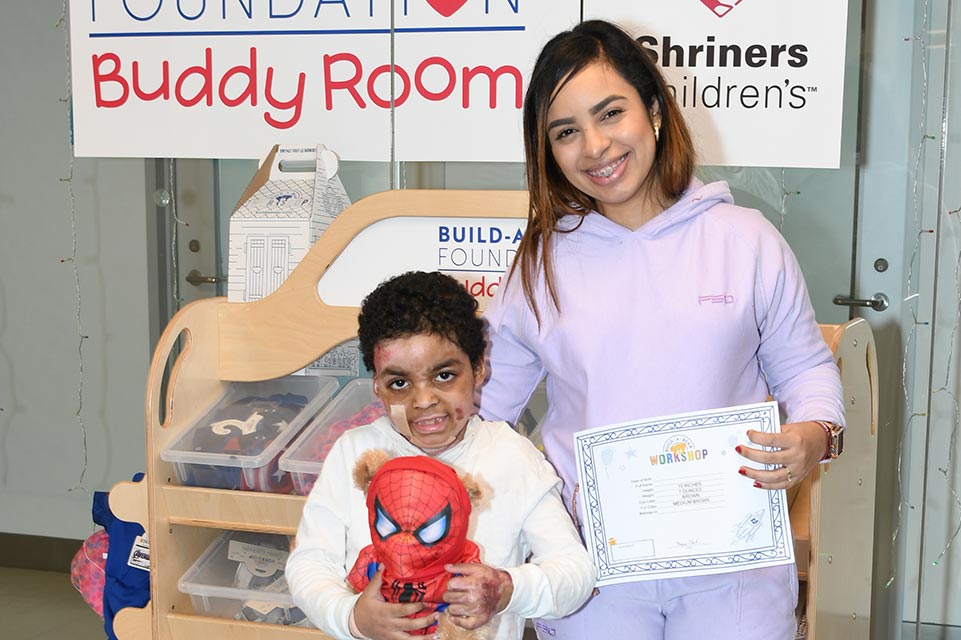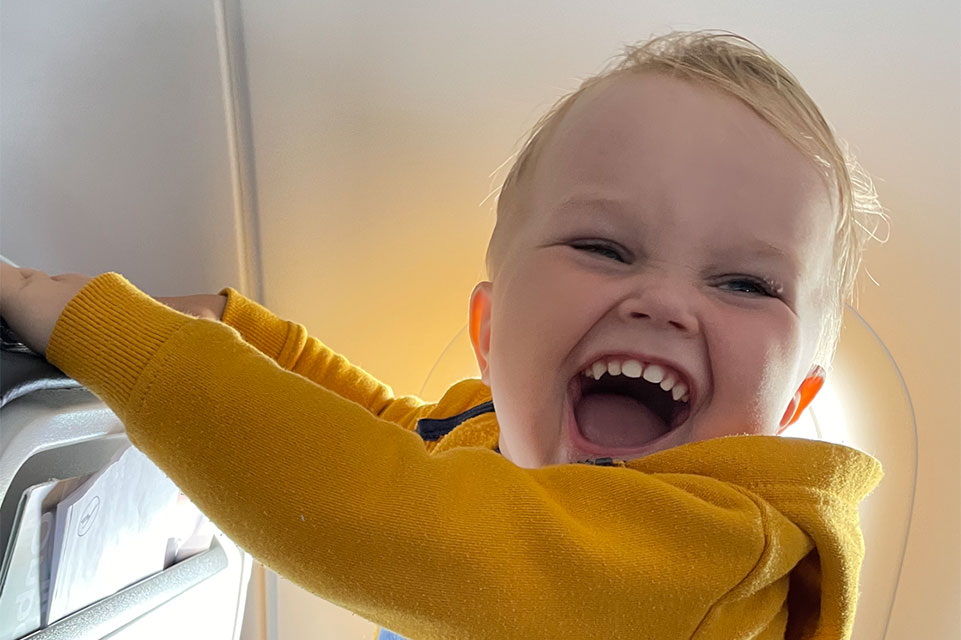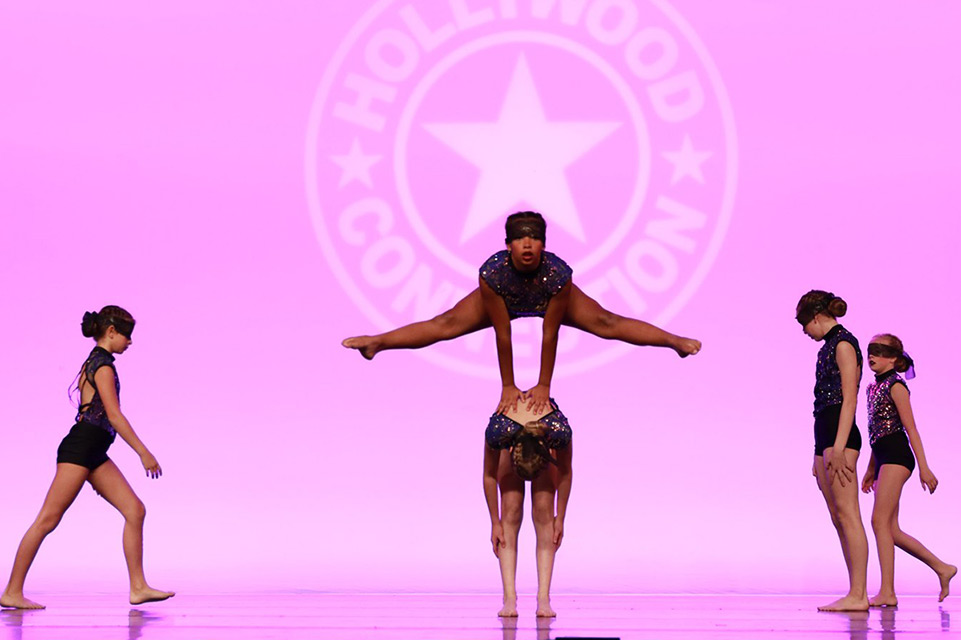Sean:
We were excited to find out what we were going to have for their second child. And the doctor quickly identified that she was going to be a girl. And then he started to continue to take some measurements, and a few minutes later he came out and said, "I think I'm noticing something here." And it was, first of all, that she was missing a bone in her lower leg. He also noticed that the upper bone in her thigh, or her thigh bone was bowed, and not as long as the right leg.
Robert H. Cho, MD:
In Gianna's case, she had a leg that was essentially non-functional below the knee. And although she could have been able to do some things with that non-functional leg, she would not be able to do as much as if she got an amputation and was fitted with a prosthesis. And so, that type of decision isn't taken lightly, but we are fortunate that we take care of so many kids with this condition.
Devon:
It was very scary, very unexpected. You go in to find the sex of your baby, and you find out we have other issues that we need to address. He called it proximal fibular focal deficiency.
Sean:
Fortunately, our OBGYN, her husband was an orthopedist. And he was actually friends with the chief of staff at Shriners in Los Angeles. And so, very quickly he had us on the phone with an orthopedic, just explaining to us what condition this was, what type of life we could expect. And they had talked about, well, there's leg lengthening procedures, there's amputations. And certainly we were hoping for a leg lengthening procedure, but as that discrepancy grew, we started to realize that that option probably wasn't as viable of an option for her.
Devon:
She was born, and she was perfect. And it was so calm and peaceful in that moment, and I think having Sofia already, and her having a big sister, life just... okay, let's go.
She was about three months old. We had our first visit at a clinic at Shriners. And the beauty of it is we could see another kid that was maybe a year old, and we can see a three-year-old, and we can see a five-year-old, and seven and nine. We see these other kids that are there, and they're smiling, and they're laughing, and they're with their families. And I can visualize what my child was going to be, and how she was going to be. That was why we chose Shriners. We knew it wasn't just a surgery that was going to be completed and we were on our own. We had a community. There was physical therapists, there were people to help us with services in our community. It was the doctors, it was the processes. It was a community of people and families, that we knew that this was the place that we could be with her for long term.
The day of surgery, we came up to the hospital. You come really early in the morning, and it just was a calm day. Even though Gianna probably doesn't remember it, I'm sure there's a lot of trauma. It is physical trauma that you're putting your child through. And that is something that as a parent, it's very frightening. But she came out of it like a champ.
Gianna:
I remember just driving up to Shriners, and always going through those doors and feeling so welcome. And the people there were just so patient with me, and so open to trying to give me the best possible
leg. And I know as a child, I've been difficult in some scenarios, and they've just always made me feel worthy of being there, and feel like I could do anything.
Speaker 6:
Good girl, Gigi.
Sofia:
You did it!
Devon:
Her prosthetist was Tony Ellis. He would make her feel comfortable. The relationship between a prosthetist and a patient is so intimate.
Anthony Ellis:
She has today, the same personality she had when she was one year old. She was very playful, very outgoing, and Gigi was a people person. She did not shy away from a stranger walking into the room. She was that kind of person.
Devon:
The trust they built, the love they built together. It really was an amazing process, knowing that when we got there, there was no fear for her. She had a routine, people she knew. Denis was amazing. He also is an amputee, so as a parent, he can tell me ways to wash the prosthetic. Simple details that I wouldn't know, that they could share with us to make our life just a little bit easier.
Denis Jordan:
Gianna was very precocious. She was, I'll have to say, a wild child. Doesn't matter what anybody considered a disability, she didn't have one. And you couldn't have a better patient, to be honest with you. Fearless, just ready to go.
Devon:
Gianna was always pushing the boundaries, always pushing how far she can climb up a tree, how fast she can go. She just would always push herself to keep up with her sister, keep up with the kids in the neighborhood, and go, go, go, go, go.
Gianna:
With my sister, she was always doing sports, and being active in our community, so I always looked up to her and I always wanted to be just like her. And so, I went out and tried sports. I played soccer, softball, I did fencing for a little bit. I did tennis when I was younger, I did swimming. Whatever activity she would do, I would want to try too.
Sofia:
I think we have a special bond, because I am not just like a protector because of her leg, but just as an older sister. And especially now, I think our relationship has grown a lot as we've gotten older and more mature.
Matthew:
What makes me proud of Gianna, is that she's able to do multiple activities at once, if she wants to. If she wants to do something, she just decides, okay, let's do it. Instead of, well, this might happen and then this might happen. She just does what she wants.
Corey Lerner:
She was our number one doubles player. And she as an overall person, really inspires not only myself but the other girls. Because she comes onto the court with a lot of vigor and energy, and she motivates the team not just as an individual, but just to collectively get everybody in the tennis mood.
Christina Rising:
I think Gianna is a person that is really receptive to feedback, which I think is a very good thing for a student. Having the confidence to be able to hear criticism and be able to take that, learn from that and grow from that, I think is a demonstration of her ability and her confidence.
Devon:
One thing that I knew when Gianna was born, she was going to make us better people. She would make me a better mother, she would make me a better spouse, she'd make me a better person. And I think she's done that for all of us in the family. She raises the bar. We don't have a lot of excuses in this house.
Sean:
I think what makes me most proud of her, is just how she's grown up, how she perseveres. How she gets up every day and gets out of bed, puts on her leg. I have to understand that no day's easy for her, but she always has a great attitude about just getting up and going.
Gianna:
When I think of my dad being a Shriner, I feel so grateful for him, and my family, and Shriners and Masons. Because he's gotten into it because of me. And he has joined a community, and he's been a part of it, and he's changing things in Shriners Hospital. What I'm proud of the most in my life is probably my personality and my confidence. Because I went through points in my life where I did not think I was going to be the person I am today. I was really down, I was really low in my life. I didn't believe in myself. I'm proud of who I've become. When I think about the legacy I leave behind, I want to be a person that people look towards for encouragement and inspiration. I want to be the person that shows strength, and vulnerability and honesty. I want to show kids just like me that the limits are endless, and they could do whatever they want. And just, you have to be active and you have to go and try.
Juan Diego:
I'm Juan Diego. Welcome to Tegucigalpa, my hometown located in Honduras. This is a place where I was born and raised, just like, pretty much like any other normal kid.
Jackie:
[Spanish 00:11:40].
Juan Carlos:
My memories are of him being my best friend. I always wanted to play with him, in my team and all that, and I will always defend him. And yes, because I'm the older brother, and I was very protective about him since little.
Juan Carlos:
[Spanish 00:12:50].
Juan Diego:
When I was 13, my mom decided to move to a new apartment, which was on the third floor facing the street under construction. Since it was under construction, the apartment wasn't totally finished. There was a window without the glass facing the street, at the same height of the light post with some high voltages wires in front of it.
Jackie:
[Spanish 00:13:29].
Juan Diego:
Faster than the blink of an eye, I just felt like all the charge, all the electricity literally going through my body. It was so fast, you don't have time to react to it. My heart starts rushing really fast, to the point that you feel that your heart is going to explode. And suddenly all the lights turn off, and you just kind of feel like, in this lonely cave all by yourself. Because I was able to hear my mother scream, because of her worry.
Jackie:
[Spanish 00:15:02].
Juan Diego:
So, suddenly I just woke up really scared. Because one of the neighbor was giving me CPR, so I couldn't react. I just saw five peoples around me and they were like, "Are you okay? Are you okay?" They gave me a cup of water, and suddenly I was trying to stand up, but I couldn't. And obviously they didn't let me, so why I can't stand up? And I just felt like, as if I didn't have no arms, because I wasn't unable to move it. And that's when I realized, and I look around me, and I just saw all of my hands burned.
Jackie:
[Spanish 00:15:51].
Juan Carlos:
[Spanish 00:15:54].
Juan Diego:
Day by day, just knowing what to be a burn survivor means, and experiencing all the processes, all the pains. I remember one night I just started to experience that feeling of being powerless. One of the nurses called my family, and I remember just like 10 persons trying to fit in this little door, and they were just trying to, "Hi, hi," and all of that. And I just remember a smile on my face, but tears on my
eyes, of just seeing them. And started to see how special they are, and started to experience that feeling that I'm not alone at that moment.
Jackie:
[Spanish 00:17:45].
Juan Carlos:
[Spanish 00:18:47].
Juan Diego:
I remember going to my first appointment. And they were just really nice, and careful with me, like taking my bandages off. They understand, because at the time, I haven't seen my hands. My parents just told me, "They have to make some amputations in your fingers," but I have never looked at my hands.
Jackie:
[Spanish 00:19:51].
Courtney Updegrove:
I think the first thing I always say about Juan Diego, is he has the best attitude that you could ever have. He has a great future to look for. He's always looking forward. And I always say he is one of those bright stars that everyone always looks for.
Dr. Joseph Upton:
I think it's pretty amazing. Because the burn had to go one arm, through the other arm, and the heart is in between. And usually, they'll fibrillate and not survive. And he of course, did survive. We had to give him a feeling, a sensation. And of course, love to do this in kids, because they get such great results. And that's basically doing a nerve graft, so we take nerves from somewhere else in his body and move it into his hand.
Dr. Branko Bojovic:
I would say part of my treatment role in his care, was coming out in that sort of form and appearance, and improving some of the things that we would look at from an appearance standpoint, and complimenting what functional gains he's already had, and helping to soften things up in terms of a lot of his scarrings. Juan Diego has a moniker as being known as the mayor of the hospital. When he shows up, it's almost like there's a motorcade that's bringing him.
Juan Diego:
It was just after my nerve graft surgery, where I had these really huge scars in my hand. And I remember asking my doctor, "Doctor, do you think, am I going to have this scar?" And he was just dead serious, like, "Kid, we're surgeons. We don't leave scars in here." I was like, no way. This guy is something else. And just as he said, one month later, I wasn't able to see the same scar. And to this day, you don't see any scarring here. That's the way I can summarize the treatment in Shriners.
Juan Carlos:
Juan Diego is like light in the darkness. Doesn't matter where he is, he always shines. He always brings the best out of everyone, and that's why I think he's a great leader. There's this phrase that now we say in our family, that the biggest battles are given to God's biggest warriors. And well, that's the battle that was given to Juan Diego.
Jackie:
[Spanish 00:23:38].
Juan Carlos:
[Spanish 00:23:38].
Juan Diego:
Technically, I'm not supposed to be alive. I'm not supposed to have hands. That just amazes me. The purpose of all of this, is to show how good God is in all of this. Coming here, it's like the greatest comeback you can think about. Five years after the accident, just as good as I am, with this attitude, hoping to help so many people with now, as an international patient ambassador. It's just like laughing in the face of this building, because it just couldn't stop me. Because it wasn't me, it was my family helping me, my friends, and overall just God being sovereign. It's not thanks to me. It's just thanks to all the people that helped me, including Shriners.

